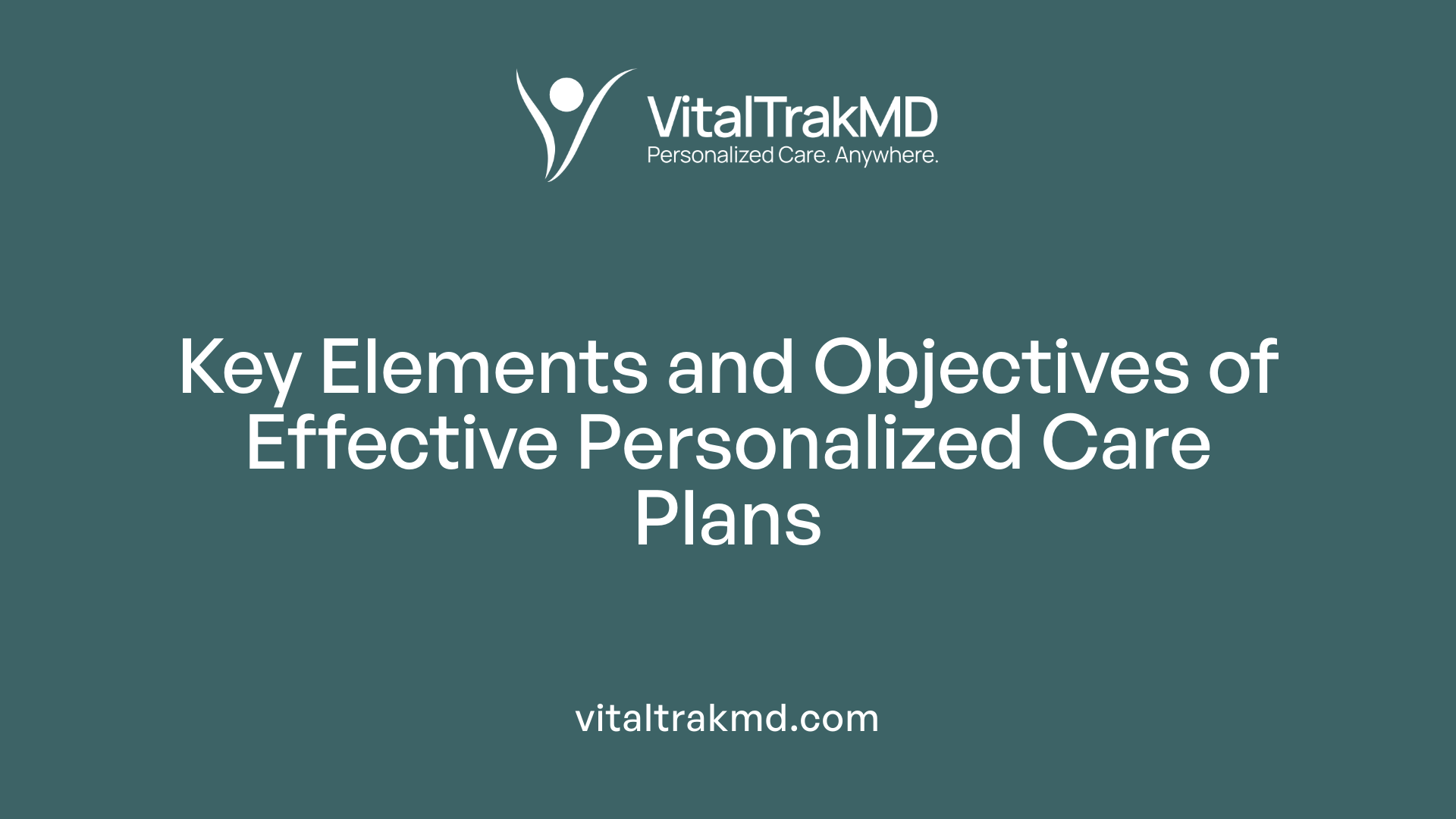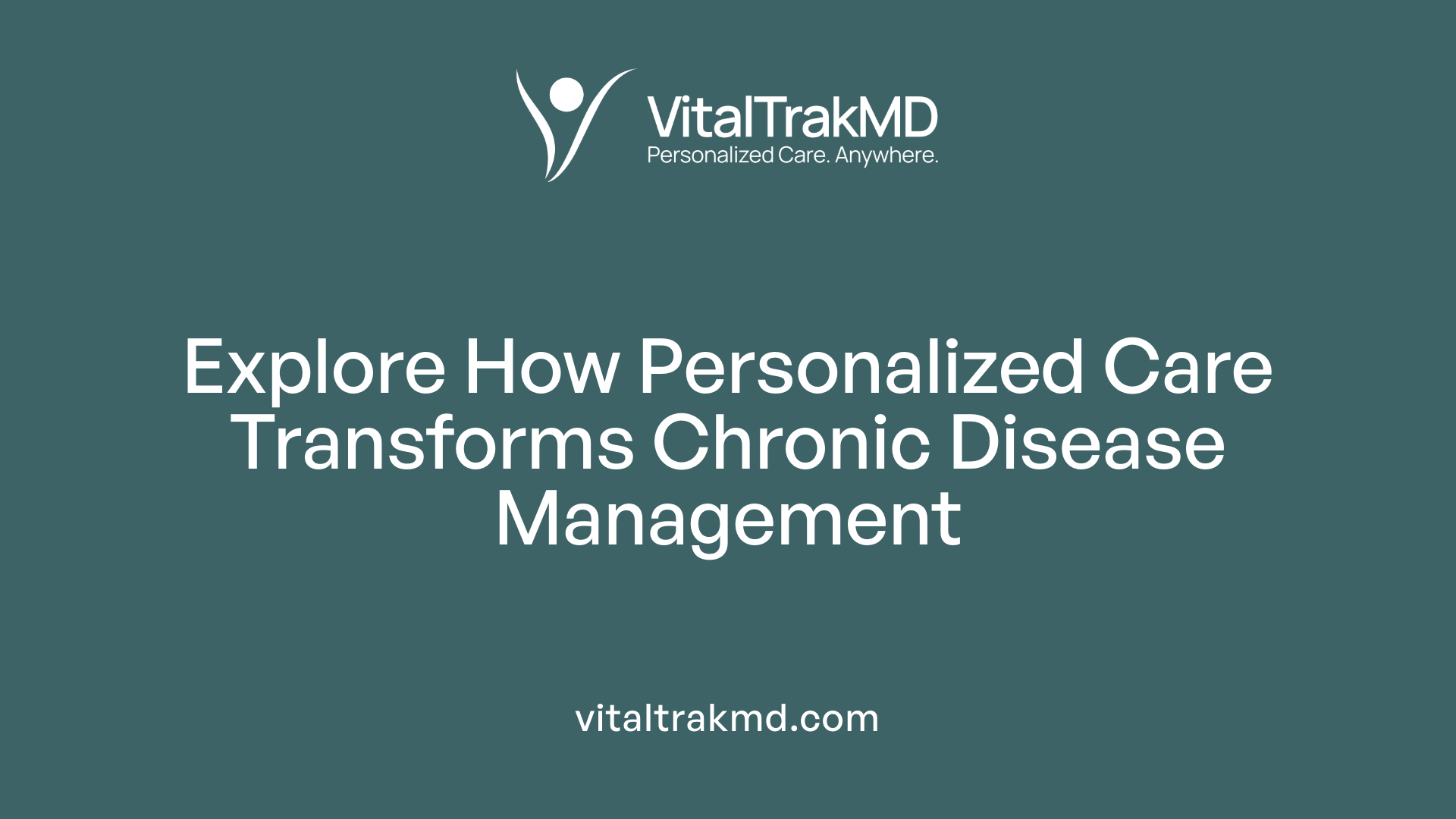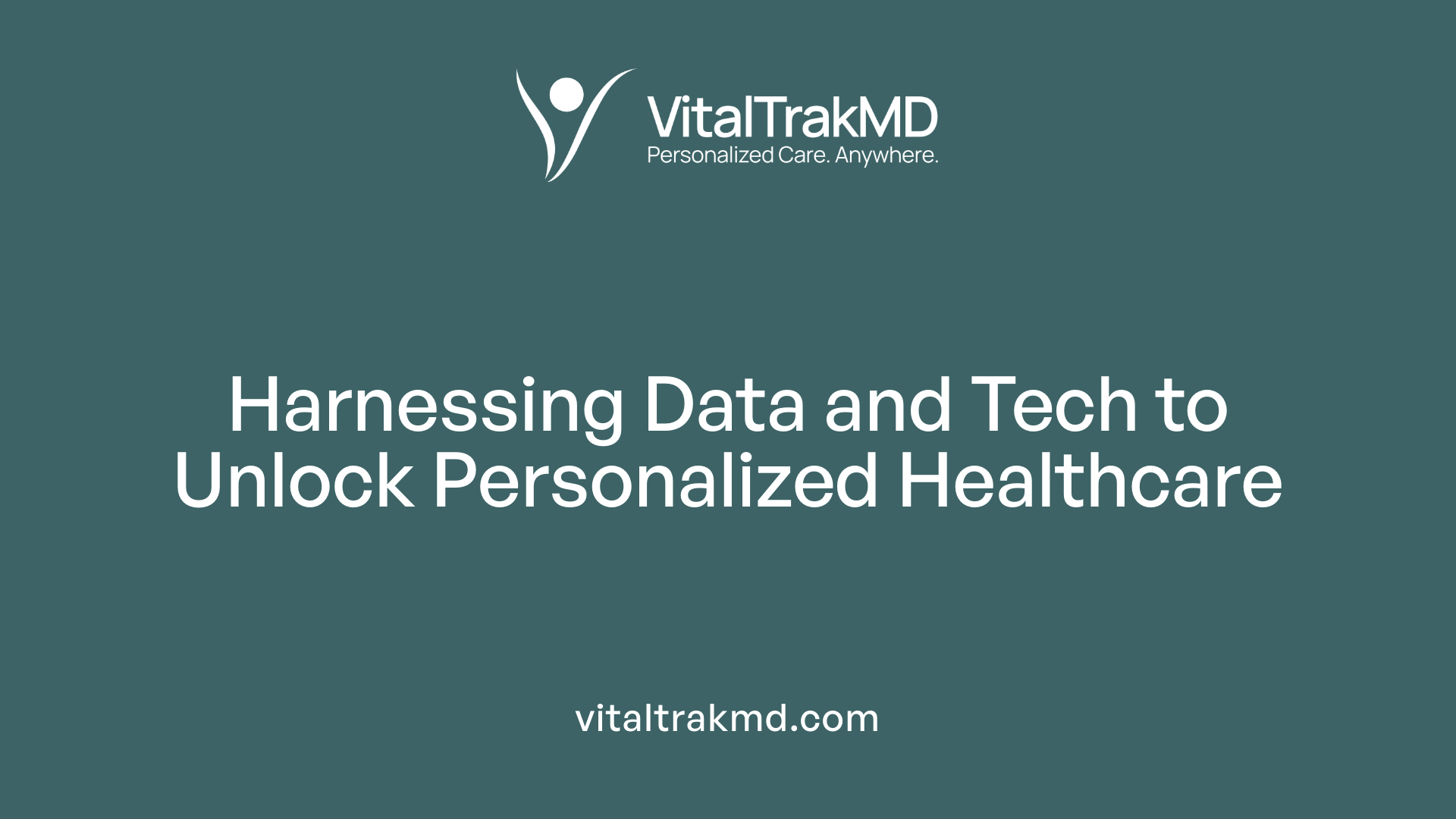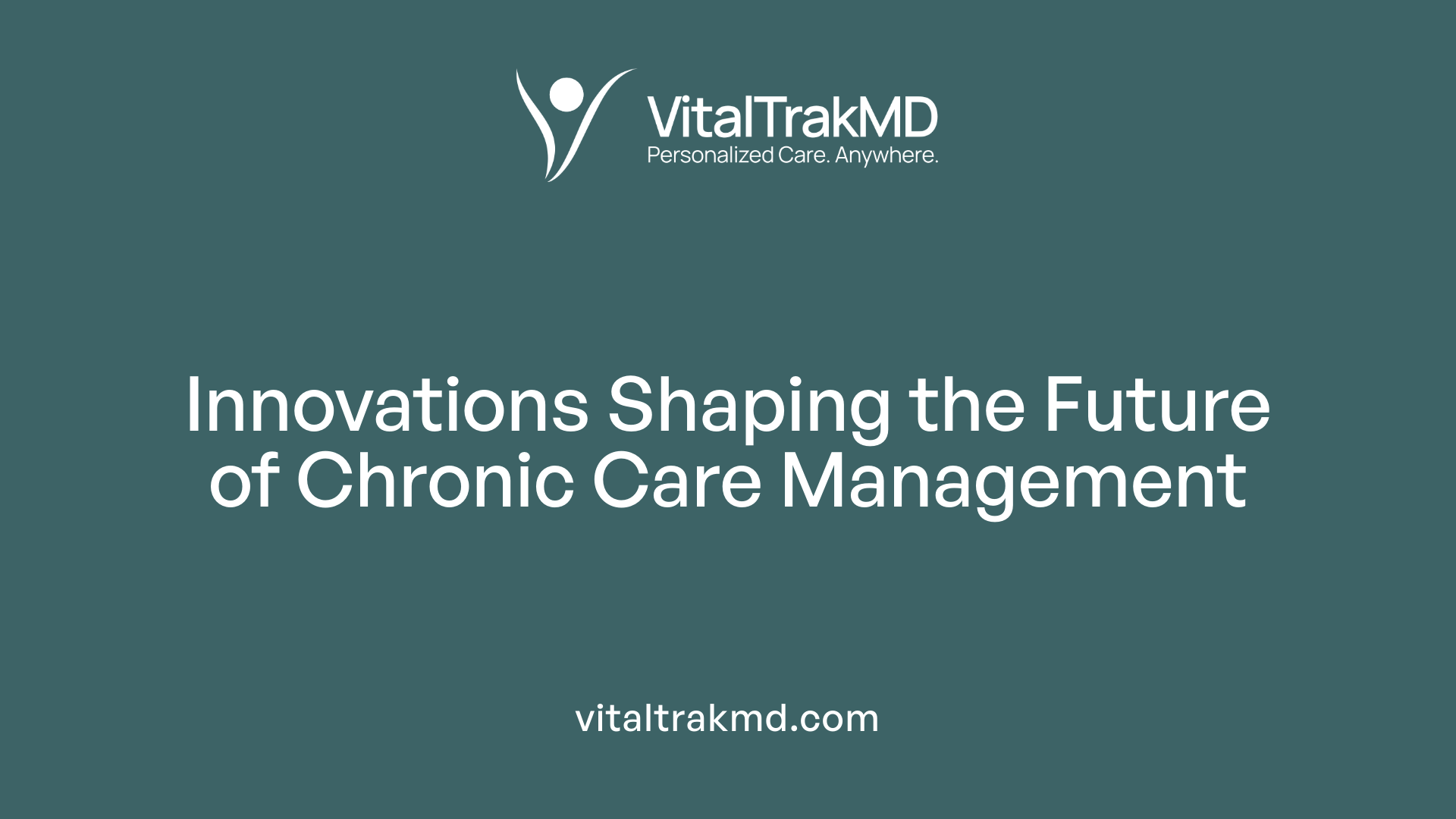Personalized Chronic Care Plans vs. Generic Clinic Visits

The Shift from One-Size-Fits-All to Personalized Healthcare
As the healthcare landscape evolves, a significant shift is occurring from traditional, generic medical visits to highly individualized, personalized care strategies. These tailored approaches are particularly impactful in managing chronic conditions, which require ongoing, coordinated care plans designed around each patient's specific health profile, lifestyle, and preferences. This article explores the key differences, benefits, and methodologies of personalized chronic care plans compared to conventional clinic visits, highlighting how innovations in data systems and clinical decision support are transforming patient outcomes.
Understanding Chronic Care Management Care Plans
What are chronic care management care plans?
Chronic Care Management (CCM) care plans are personalized strategies designed to oversee and coordinate treatment for patients managing multiple chronic conditions. These plans serve as a roadmap that helps healthcare teams address individual health needs through tailored interventions. They are crucial for preventing disease progression and minimizing hospitalizations.
CCM care plans go beyond simple treatment instructions. They include comprehensive components such as medication management, health education, goal setting, and support for lifestyle changes. A central feature is the emphasis on ongoing, often non-face-to-face, interactions—such as regular phone calls or digital communication—to monitor patient progress and make necessary adjustments.
What components are involved in a CCM plan?
The structure of a CCM plan involves several essential elements:
| Component | Description | Purpose |
|---|---|---|
| Personalization | Plans are tailored to each patient's specific conditions, risks, and preferences. | Ensures relevance and effectiveness of care. |
| Care Coordination | Involves collaboration among primary care providers, specialists, and care managers. | Promotes seamless care transitions. |
| Self-Management Support | Educates patients on managing their health, medications, and lifestyle. | Empowers patients to take an active role. |
| Medication Management | Regular review and adjustment of medications to prevent interactions and ensure efficacy. | Improves safety and adherence. |
| Community and Social Resources | Incorporates community-based services addressing social determinants of health. | Addresses barriers like transportation and housing. |
| Technology Use | Deployment of health IT systems, including electronic health records and remote monitoring. | Facilitates communication and data sharing. |
How do regular interactions and non-face-to-face services function?
A hallmark of CCM is the continuous support through scheduled communications that do not require in-person visits. These include monthly phone calls, telehealth sessions, and digital messages helping to track health status, medication adherence, and lifestyle changes. Such interactions enable early identification of issues, foster patient engagement, and allow timely adjustments to the care plan.
These non-face-to-face services are often provided through platforms like ChartSpan, which streamline the administration of CCM programs. They help maintain ongoing patient contact, ultimately leading to improved health outcomes, higher patient satisfaction, and reduced healthcare costs. The combination of personalized plans with regular, proactive engagement exemplifies a modern approach to managing complex health needs effectively.
The Core Components and Goals of Personalized Care Plans

What are the main components and objectives of personalized chronic care plans?
A personalized chronic care plan is a detailed, patient-centered document that addresses an individual's unique health conditions, goals, and social circumstances. It acts as a roadmap for managing long-term health issues, especially in patients with multiple or complex conditions.
The key components of these care plans include managing medications effectively, providing tailored lifestyle and behavioral recommendations, monitoring symptoms regularly, and conducting functional and cognitive assessments. They also incorporate external resources such as community support programs, mental health services, and social services to address broader needs.
The primary objectives of personalized care plans are multifaceted:
- To improve overall health outcomes by customized interventions.
- To foster patient engagement and active participation in health management.
- To facilitate seamless coordination among various healthcare providers for continuous and integrated care.
- To promote self-management skills, empowering patients to take control of their health.
Effective plans are developed collaboratively, involving patients, clinicians, and caregivers, ensuring they are adaptable to changing health statuses. They are documented electronically for easy access, regular review, and timely updates.
Ultimately, these plans aim to align healthcare efforts with what matters most to the patient, enhancing quality of life, reducing hospitalizations, and decreasing healthcare costs by preventing unnecessary interventions and promoting early detection and proactive management of health issues.
Defining Personalized Care Strategies

What are personalized care plans?
Personalized care plans are customized strategies designed to meet the unique health needs and goals of each individual patient. These plans are developed through a collaborative process involving both healthcare providers and patients, ensuring that care is tailored and patient-centered. They encompass specific treatment options, lifestyle modifications, and support mechanisms aimed at improving health outcomes.
Creating these plans involves discussing problems related to the patient's condition, their preferences, and their social and environmental contexts. By actively involving patients, clinicians can set realistic goals, identify potential barriers, and develop actionable steps that empower patients to manage their health more effectively.
The process usually includes several key steps: preparation, goal setting, action planning, documenting, coordinating, supporting, and reviewing. This iterative cycle ensures the plans remain relevant and adaptable to changing health circumstances.
Overall, personalized care plans aim to provide more effective, efficient, and satisfactory healthcare experiences. They help reduce unnecessary treatments, foster better patient-provider relationships, and ultimately lead to improved physical and psychological health. By considering not only medical data but also individual lifestyle and genetic factors, these plans promote a holistic approach to managing chronic conditions and promoting well-being.
| Aspect | Description | Additional Details |
|---|---|---|
| Patient-specific treatment | Tailored therapies based on personal health data | Genetic profiles, lifestyle, medical history |
| Collaborative development | Co-creation between clinicians and patients | Enhances engagement and adherence |
| Data inclusion | Incorporating lifestyle, genetic, and personal health data | Ensures comprehensive understanding |
Understanding the scope and application of personalized care plans highlights their importance in modern healthcare, especially for managing complex or long-term health conditions.
Contrasting Personalized and Traditional Medical Visits
How do personalized care plans compare to traditional medical visits?
Personalized care plans significantly differ from traditional medical visits in their approach to patient management. Traditional visits often follow a clinician-driven model where healthcare providers focus on diagnosing and treating symptoms based primarily on standard protocols and the patient's immediate concerns.
In contrast, personalized care plans are collaborative, involving active participation from patients alongside clinicians. This process includes identifying individual problems, setting tailored health goals, and developing specific action strategies together. Patients are encouraged to contribute personal preferences, lifestyle information, and social factors, which helps in creating a care pathway that truly reflects their unique needs.
One major benefit of this approach is increased patient engagement and satisfaction. Patients feel more empowered and involved in their health decisions, leading to stronger clinical relationships and improved trust.
Furthermore, personalized care emphasizes proactive prevention, early detection, and continuous care coordination rather than episodic treatment. This shift not only improves clinical outcomes, such as better blood pressure control and reduced depression symptoms, but also enhances overall patient experience.
Regarding efficiency and cost, personalized plans can lead to more targeted interventions, reducing unnecessary tests and hospitalizations. Evidence suggests that tailored management strategies are more cost-effective over time by preventing disease progression and minimizing healthcare resource utilization.
While personalized care requires longer visits and sophisticated health IT systems to facilitate ongoing communication, the benefits in health outcomes, patient satisfaction, and potential cost savings make it a promising alternative to traditional, often passive, healthcare encounters. Early data show that these collaborative and tailored processes not only improve the quality and safety of healthcare but also foster stronger patient-provider relationships, which are crucial in managing chronic diseases effectively.
The Critical Role of Data and Technology in Personalization
 Personalized healthcare heavily relies on advanced data collection and analysis tools to tailor treatment plans and improve patient outcomes. Electronic health records (EHRs) serve as the backbone of this process, compiling comprehensive patient information, including medical history, genetic data, lifestyle factors, and social determinants of health. When combined with biometric data obtained through health screenings and wearable devices, these systems offer a detailed profile of each individual, enabling more accurate diagnosis and personalized intervention strategies.
Personalized healthcare heavily relies on advanced data collection and analysis tools to tailor treatment plans and improve patient outcomes. Electronic health records (EHRs) serve as the backbone of this process, compiling comprehensive patient information, including medical history, genetic data, lifestyle factors, and social determinants of health. When combined with biometric data obtained through health screenings and wearable devices, these systems offer a detailed profile of each individual, enabling more accurate diagnosis and personalized intervention strategies.
Beyond data collection, sophisticated analytics and artificial intelligence (AI) tools analyze vast datasets to uncover patterns and predict health risks. These tools utilize machine learning algorithms to identify subtle trends that might escape traditional analysis, thus facilitating early detection of disease or deterioration. They also assist in evaluating potential treatment options by forecasting likely outcomes, helping clinicians choose the most effective interventions.
Real-time decision support systems (DSS) further enhance personalized care by providing instant, evidence-based recommendations at the point of care. During clinical encounters, these systems process incoming patient data and clinical guidelines to suggest tailored management strategies. By integrating predictive analytics with continuous monitoring devices, DSS can alert providers to critical changes in a patient’s condition, prompting immediate action.
The role of these technological advances extends to proactive health management. For example, AI-driven algorithms can stratify patients based on their risk profiles, prioritize resources, and suggest targeted lifestyle or medical interventions. This not only improves individual health outcomes but also optimizes healthcare delivery, reducing unnecessary tests and hospitalizations.
In summary, data-driven systems and clinical decision support are instrumental in personalizing healthcare. They transform raw data into actionable insights, support clinicians with reliable recommendations, and empower patients to participate actively in their health management. As these technologies evolve, they promise to make healthcare more precise, efficient, and accessible for everyone.
Impact on Short and Long-Term Healthcare Outcomes
How do tailored, individualized care approaches impact healthcare outcomes for chronic conditions?
Personalized care planning involves a collaborative process where patients and clinicians work together to develop tailored strategies for managing long-term health conditions. This approach considers individual factors such as genetic makeup, lifestyle, social determinants, and specific health risks, leading to more effective management and prevention.
Evidence from 19 randomized controlled trials with over 10,800 participants shows that personalized care can produce small yet statistically significant improvements in key physical health measures. For instance, glycated hemoglobin (HbA1c) levels decreased by an average of 0.24%, and systolic blood pressure dropped by approximately 2.6 mm Hg. These benefits are especially notable when the care is comprehensive, intensive, and well integrated into routine practice, involving multiple stages of the care cycle and regular professional contact.
Beyond physical health, personalized approaches also positively influence mental health, with notable reductions in depression symptoms. A pooled analysis revealed a decrease in depression scores, indicating better psychological well-being. Additionally, patients report increased confidence in managing their conditions, reflected in improved self-efficacy scores.
The benefits extend to early detection and preventive care. Personalized screenings based on family history and individual risk factors enable clinicians to catch diseases sooner, enhancing the chances of successful intervention. Tools like Annual Wellness Visits (AWVs) and Health Risk Assessments (HRAs) support this by providing comprehensive health profiles that inform tailored preventive strategies.
Furthermore, innovative data-driven systems like the Precision Cohort Treatment Option (PCTO) utilize electronic health records and machine learning to identify the most effective treatment options for conditions such as hypertension and diabetes. These systems analyze real-world outcomes, assisting clinicians in choosing therapies with higher probabilities of success, ultimately improving long-term health outcomes.
Overall, adopting personalized, patient-centered strategies fosters better disease control, reduces hospitalizations, and enhances quality of life. By focusing on individual health profiles and promoting active patient engagement, healthcare providers can achieve more meaningful and sustained improvements in managing chronic conditions.
Advantages of Patient-Centered Approaches in Chronic Disease Management
What are the benefits of personalized, patient-centered care in chronic disease management?
Personalized care in managing chronic diseases is designed to meet each patient’s unique health needs, preferences, and circumstances. This approach involves tailoring treatment plans based on a patient's genetic makeup, lifestyle factors, and social environment, leading to more accurate diagnoses and targeted therapies.
One major benefit is improved health outcomes. By focusing on individual goals and involving patients actively in their care, personalized strategies can lead to better control of conditions such as diabetes, hypertension, and depression. Patients often experience enhanced satisfaction with their care because treatment plans resonate with their values and daily lives.
An important aspect of this approach is fostering active engagement and self-management skills. Programs like Chronic Care Management (CCM) and Annual Wellness Visits (AWV) encourage patients to participate in decision-making, improve their understanding of health issues, and adhere more consistently to treatment regimens.
Additionally, early disease detection is improved through personalized assessments, which can use genetic testing, biometric screenings, and tailored screening schedules based on family history. This proactive approach helps prevent complications, reducing hospital admissions and related healthcare costs.
Communication and coordination among healthcare providers are also strengthened. Shared care plans, supported by electronic health records and decision support tools, ensure that all team members are aligned and that patient care is continuous and comprehensive.
This integration of personalized, patient-centered care not only boosts clinical effectiveness but also enhances quality of life. Patients feel more supported and confident in managing their conditions, leading to sustained health benefits and overall well-being.
| Benefit Area | Description | Example |
|---|---|---|
| Improved health outcomes | Tailored care leads to better disease control | Better blood sugar and blood pressure management |
| Increased patient engagement | Patients actively participate in decision-making | Care plans adapted to patient preferences |
| Cost reduction | Preventing complications reduces hospital visits | Fewer emergency admissions due to better management |
| Communication & coordination | Teams work seamlessly across disciplines | Shared electronic records support continuous care |
| Enhanced quality of life | Patients experience higher satisfaction and autonomy | Support for mental health and social needs |
Overall, personalized patient-centered strategies in chronic disease management foster a more effective, satisfying, and cost-efficient healthcare experience, positively impacting individuals and health systems alike.
Evaluating Evidence and Effectiveness of Personalized Strategies
How do personalized care strategies compare to traditional medical visits in terms of evidence and effectiveness?
Research into personalized care approaches has shown that they offer improvements over conventional healthcare visits, especially for managing long-term conditions. Multiple clinical trials and systematic reviews support their use, highlighting small but meaningful enhancements in health outcomes.
For example, evidence from 19 randomized controlled trials involving over 10,800 participants demonstrates that personalized interventions can lead to measurable improvements in physical health indicators. These include a reduction in glycated hemoglobin (HbA1c) levels by approximately 0.24% and a decrease in systolic blood pressure by about 2.64 mm/Hg. Such results indicate better blood sugar and blood pressure control, crucial for conditions like diabetes and hypertension.
Additionally, personalized care has been associated with positive psychological effects. Specifically, there are small reductions in depression symptoms, with a pooled standardized mean difference of -0.36, suggesting less depressive symptom burden among patients engaged in personalized plans.
Beyond physical and mental health benefits, personalized strategies significantly boost self-management capabilities. Data show an increase in self-efficacy, with an effect size of around 0.25, which equates to increased confidence and skills necessary for managing one’s health effectively.
The extent of these benefits tends to be greater when the personalized care approach is comprehensive, intensive, and integrated into routine healthcare practices. When more stages of the care cycle are completed and when regular contact with healthcare providers is maintained, the health improvements become more pronounced.
However, the evidence isn't entirely conclusive across all health outcomes. While findings support improvements in blood glucose control, depression scores, and self-efficacy, results on other areas like quality of life, cholesterol levels, BMI, and health behaviors remain mixed or inconclusive.
Importantly, current studies indicate no adverse effects linked to personalized care planning, reinforcing its safety profile. As a result, personalized care is viewed as a promising strategy for managing chronic and long-term health conditions.
In summary, personalized care strategies outperform traditional visits in several key areas, backed by substantial evidence. They improve not only physical and mental health indicators but also enhance patients’ confidence in managing their conditions. These advantages are amplified when the approach is more comprehensive and integrated, suggesting a shift towards more tailored, patient-centered healthcare models.
Systems and Technology for Implementing Personalized Care
Effective implementation of personalized care relies on sophisticated systems and technological tools that enhance coordination, decision-making, and patient engagement. A cornerstone of these systems is interoperability infrastructure, such as FHIR (Fast Healthcare Interoperability Resources), which allows seamless data exchange across different healthcare platforms and electronic health records (EHRs). This connectivity ensures that clinicians have comprehensive, up-to-date information to inform individual treatment plans.
Clinical decision support modules are another vital component. These modules analyze patient data, including genetic, lifestyle, and clinical information, to provide tailored recommendations. They help reconcile multiple clinical guidelines, especially in managing multimorbid conditions, and support real-time treatment adjustments. By integrating evidence-based guidelines with patient-specific data, these tools facilitate more precise and effective care plans.
Patient engagement platforms enhance communication and shared decision-making. These platforms enable patients to access their health records, participate actively in care planning, and stay connected with their healthcare team. Features like health portals and empowerment tools promote self-management, increase adherence to treatment regimens, and improve overall health outcomes.
The combination of robust interoperability, advanced clinical decision support, and user-friendly patient engagement tools creates a comprehensive digital ecosystem. This infrastructure supports personalized healthcare by ensuring data accuracy and accessibility, enhancing decision-making quality, and fostering active patient participation, ultimately leading to better management of chronic conditions.
Future Directions: Integrating AI, Machine Learning, and Virtual Care

Emerging Technologies and Innovation
The future of personalized chronic care management is increasingly shaped by technological advancements. Innovations such as artificial intelligence (AI), machine learning, and advanced data analytics are transforming how healthcare providers understand and treat chronic conditions. These technologies enable the development of sophisticated decision support systems that analyze vast amounts of electronic health record (EHR) data, genetic information, and lifestyle factors. This integration allows for more accurate risk stratification, early detection of health issues, and tailored treatment plans that adapt dynamically to patient needs.
Remote Monitoring and Telehealth Expansion
Remote monitoring devices and telehealth platforms are expanding access to personalized care beyond traditional clinical settings. Wearable devices track vital signs, activity levels, and other health metrics in real-time, providing continuous data streams to healthcare teams. Telehealth consultations foster ongoing patient-provider communication, facilitating timely interventions and adjustments to care plans. Such approaches improve disease management, reduce hospitalizations, and support patient engagement, especially for those with mobility or geographic barriers.
AI-Driven Personalized Treatment Workflows
AI-driven workflows support clinicians by synthesizing diverse data sources to recommend personalized treatment options at the point of care. These systems analyze patient characteristics, genetic profiles, and historical outcomes to identify the most effective interventions. For example, AI can suggest optimal medication adjustments for diabetes or hypertension based on individual response patterns. As these tools become more sophisticated, they will further streamline decision-making, reduce trial-and-error approaches, and enhance long-term health outcomes.
| Technology Aspect | Impact on Care | Potential Benefits | Challenges to Address |
|---|---|---|---|
| AI and Machine Learning | Improved decision support, risk prediction | Personalized treatments, early intervention | Data privacy, algorithm bias |
| Remote Monitoring Devices | Continuous health data collection | Early detection, real-time adjustments | Data management, patient adherence |
| Telehealth Platforms | Ongoing virtual consultations | Increased access, patient convenience | Digital divide, technology literacy |
Integrating these emerging technologies promises a future where chronic disease management is more proactive, personalized, and accessible. As the landscape evolves, ongoing developments will continue to refine how healthcare providers deliver tailored interventions, ultimately improving outcomes and quality of life for patients with long-term health conditions.
Harnessing Personalization for Better Health Outcomes
The transition from generic, episodic medical visits to comprehensive, patient-tailored care plans marks a paradigm shift toward more effective, efficient, and patient-centric healthcare. Evidence supports that personalized strategies yield measurable improvements in clinical markers, mental health, and self-management capabilities while fostering stronger patient-provider relationships. As technology continues to evolve—leveraging AI, machine learning, and interconnected health systems—the potential for highly personalized, predictive, and preventive care grows ever greater. This evolution promises not only better management of chronic diseases but also a transformative impact on healthcare quality, cost-efficiency, and patient satisfaction in the long run.
References
- Personalised care planning for adults with chronic or long‐term ...
- The Role of Personalized Healthcare - ChartSpan
- Personalized treatment options for chronic diseases using precision ...
- Personalized Medical Care: Tailoring Health Solutions to Individual ...
- A Collaborative Platform for Management of Chronic Diseases via ...
- 5 Recommendations for the AWV Personalized Prevention Plan
- Chronic Care Management - Quantum HealthCare Services LLC
Recent articles
Want to Feel Better and Live Healthier?
Join hundreds of patients taking control of their health with personalized care that fits their life – not the other way around.
Rated 4.8/5 by 32+ customers







